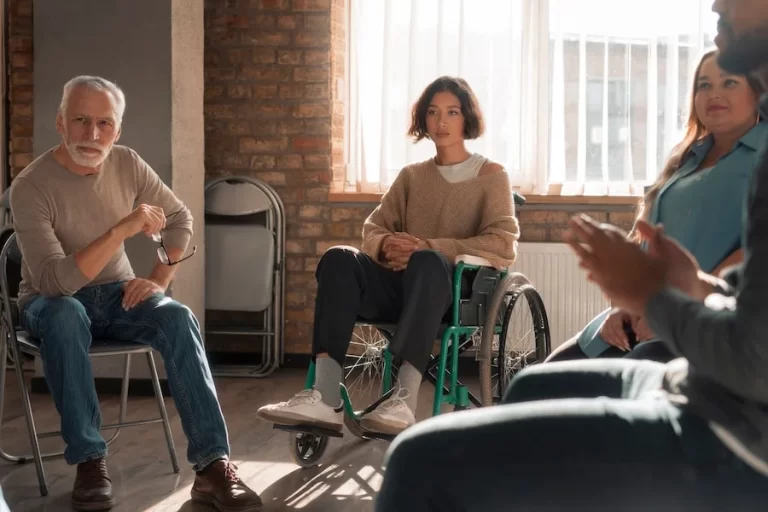Assisted living for young adults refers to a supportive living arrangement designed to cater to the unique needs of individuals in their late teens to early twenties who require assistance with daily activities due to physical or cognitive challenges. Unlike traditional assisted living primarily tailored for older adults, this specialized form of care addresses the transitional phase between adolescence and adulthood. It offers a structured environment where young adults can receive personalized support while fostering independence and self-reliance.
What Does Assisted Living Facilities for Young Adults Offer?

Assisted living facilities for young adults typically offer a range of services to support their residents in transitioning to more independent living arrangements. These services often include:
Personalized Care Plans: Tailored care plans designed to meet the individual needs and preferences of each resident, which may include assistance with activities of daily living such as bathing, dressing, and medication management.
Social and Recreational Activities: Opportunities for social interaction and engagement in recreational activities to promote mental and emotional well-being and foster a sense of community among residents.
Life Skills Development Programs: Programs aimed at teaching essential life skills such as cooking, budgeting, time management, and household management to help residents gain greater independence and self-sufficiency.
Transitional Support Services: Assistance with transitioning to more independent living arrangements or other types of care as needed, including help with finding suitable housing, employment, or educational opportunities.
Can Young Adults Live in Assisted Living?

Legal Considerations
When considering young adults living in assisted living facilities, several legal considerations come into play:
Age Restrictions: Assisted living facilities typically cater to older adults, and some may have age restrictions in place. However, many states have regulations that do not specify a minimum age for residency in assisted living facilities, allowing young adults to live there if they meet other criteria.
Legal Guardianship: For young adults with disabilities or cognitive impairments who require assistance with decision-making, legal guardianship may be necessary to ensure their rights and well-being are protected.
Healthcare Proxy: It’s essential for young adults to have a healthcare proxy or advance directive in place, designating someone to make medical decisions on their behalf if they become unable to do so themselves.
Financial Considerations: Young adults living in assisted living may need to navigate financial matters such as Medicaid eligibility, insurance coverage, and managing their own finances or having a designated representative do so.
Eligibility Criteria
Young adults may be eligible to live in assisted living if they meet certain criteria:
Physical or Cognitive Impairments: Individuals with disabilities or chronic health conditions that impact their ability to live independently may qualify for assisted living services.
Need for Assistance with Activities of Daily Living (ADLs): If a young adult requires help with tasks such as bathing, dressing, medication management, meal preparation, or mobility, they may be eligible for assisted living.
Medical Oversight: Those who require regular medical oversight or assistance with healthcare needs, such as medication administration or monitoring of chronic conditions, may benefit from the supportive environment of assisted living.
Willingness to Participate in Community Living: Young adults should be willing to engage in the communal aspects of assisted living, including participating in group activities, meals, and social interactions.
Benefits of Assisted Living for Young Adults
Assisted living offers several benefits for young adults:
Structured Support: Assisted living provides a structured environment with staff available to assist residents with daily tasks and activities, promoting independence while ensuring safety and well-being.
Socialization Opportunities: Living in a community setting allows young adults to socialize with peers, participate in group activities, and build meaningful relationships, reducing feelings of isolation and loneliness.
Access to Healthcare Services: Assisted living facilities often have healthcare professionals on staff or readily available, providing regular medical oversight, medication management, and coordination of care.
Life Skills Development: Assisted living programs may offer opportunities for young adults to develop life skills such as cooking, budgeting, time management, and self-care, fostering independence and self-confidence.
Addressing Common Concerns
Common concerns associated with young adults living in assisted living include:
Stigma: Some young adults may feel stigmatized or out of place in a facility primarily designed for older adults. Education and community-building efforts can help address this stigma and promote inclusivity.
Independence vs. Control: Balancing the need for assistance with maintaining independence and autonomy can be challenging. Assisted living facilities should strive to empower young adults to make their own choices and participate in decision-making regarding their care and daily activities.
Transitioning to Adulthood: Assisted living can be a significant transition for young adults, particularly if they are moving out of their family home for the first time. Providing support and resources to facilitate this transition can help ease concerns and promote successful adjustment.
Best Assisted Living for Young Adults Services in Phoenix
Soteria Home Care is a leading provider of assisted living services catering specifically to young adults in Phoenix, Arizona. With a mission to enhance the quality of life for our residents, We offer a comprehensive range of personalized services tailored to meet the unique needs and preferences of young adults.
Personalized Care Plans
At Soteria Home Care, each resident receives a personalized care plan designed to address their individual requirements and preferences. The care plans are developed in collaboration with the resident, their family members, and healthcare professionals to ensure that all aspects of their physical, emotional, and social well-being are adequately addressed.
Skilled and Compassionate Staff
The staff at Soteria Home Care are highly trained professionals who are dedicated to providing exceptional care and support to young adults. They undergo rigorous training programs to enhance their skills in areas such as dementia care, mental health support, and specialized medical assistance. Additionally, they approach their work with compassion, empathy, and respect, fostering a warm and nurturing environment for all residents.
Safe and Comfortable Living Environment
We prioritize the safety and comfort of its residents by maintaining a secure and welcoming living environment. The facilities are equipped with modern amenities and safety features to ensure that residents feel at home while receiving the care and support they need. From spacious living quarters to communal areas for socializing and recreation, every aspect of the environment is designed to promote a sense of well-being and independence.
Comprehensive Healthcare Services
In addition to assistance with daily activities such as bathing, dressing, and medication management, Soteria Home Care offers a wide range of healthcare services to support the overall health and wellness of its residents. This includes access to skilled nursing care, physical therapy, occupational therapy, and specialized medical services as needed. By providing comprehensive healthcare services on-site, Soteria Home Care ensures that residents can receive the care they need without having to leave the comfort of their home.
Engaging Activities and Social Events
Soteria Home Care recognizes the importance of socialization and engagement in promoting overall well-being among young adults. As such, We offer a variety of stimulating activities and social events designed to promote mental, emotional, and social stimulation. From group outings and recreational activities to educational workshops and cultural events, there is always something exciting happening at Soteria Home Care to keep residents active and engaged.
Conclusion
Assisted living facilities offer numerous benefits for young adults seeking supportive environments tailored to their needs. Firstly, these residences provide a sense of independence while ensuring safety through round-the-clock assistance and medical care if required. Additionally, young adults can benefit from the structured routines and social activities offered, fostering a sense of community and companionship. Feel free contact us for any type of query or services related to Assisted Living.
FAQs
What is assisted living for young adults?
Assisted living for young adults is a specialized housing option that provides support and assistance tailored to the unique needs of individuals typically between the ages of 18 and 40. It offers a combination of independent living and supportive services to help young adults with disabilities, chronic illnesses, or developmental challenges lead fulfilling lives.
Who can benefit from assisted living for young adults?
Young adults who may benefit from assisted living include those with physical disabilities, intellectual or developmental disabilities, mental health conditions, chronic illnesses, or those transitioning from foster care or rehabilitation programs. It provides a supportive environment for individuals who require assistance with daily tasks or medical care.
What services are typically offered in assisted living for young adults?
Services offered in assisted living for young adults vary depending on individual needs but often include assistance with activities of daily living (ADLs) such as bathing, dressing, medication management, and meal preparation. Additionally, recreational activities, socialization opportunities, transportation assistance, and access to medical care may be provided.
How does assisted living for young adults differ from traditional assisted living for seniors?
Assisted living for young adults differs from traditional assisted living for seniors in its focus on meeting the unique needs and preferences of a younger demographic. It may offer more specialized programs and services tailored to support the independence, socialization, and personal development of young adults.
How do I know if assisted living for young adults is the right choice for me or my loved one?
Deciding if assisted living for young adults is the right choice involves considering individual needs, preferences, and goals. It’s important to assess the level of support required, the availability of services and amenities, the atmosphere and culture of the facility, and the potential for socialization and community involvement.
